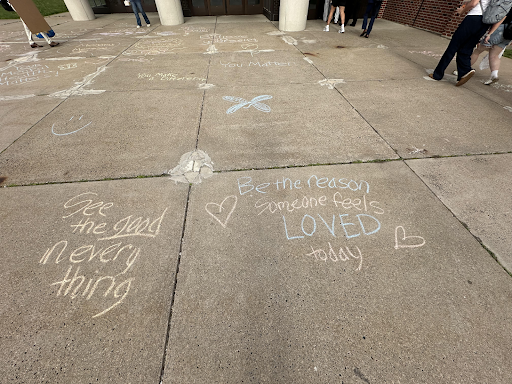Iran Leaves Nuclear Deal Following Murder of Qasem Soleimani

January 10, 2020
On Sunday, Iran stated they would no longer be limiting the enrichment of uranium, as it states in their 2015 nuclear deal. During the creation of the nuclear deal, president president Donald Trump, claimed that the deal was flawed because the restrictions placed on Iran would end after 15 years. Now, after a U.S. strike, Iran has reached the limits in less than five years.
In May, 2018, Trump withdrew the United States from the nuclear deal, stating that the accord was flawed, including the fact that the major restrictions on Iran ended after 15 years later, during the same time that Tehran would be free to produce as much nuclear power as the pleased.
Iran declared on Sunday that those restrictions were over, more than 10 years in advance. This claim shocked not only Americans, but puts Mr. Trump at a vulnerable point in his presidency. Iran’s announcement not only signified the end of the 2015 nuclear agreement, but it also recreated conditions that led Israel and the United States to think about destroying Iran’s resources ten years ago, which brings the United States back into the potential of open conflict with Tehran, which was previously avoided by the accord.
Sunday, upon announcement that they would be withdrawing from the nuclear deal, Iran also abandoned the entire deal, which was formally named the Joint Comprehensive Plan of Action. It’s foriegn minister communicated that his nation may return to its provisions in the future, on one condition – that President Trump reverse the course he has pointed the nation towards, since he has withdrawn from the accord.
After the killing of Maj. Gen. Qassim Suleimani, the second most powerful official in Iran and the head of the Quds Force, this news holds open the possibility of a less controversial off ramp to the major escalation, that experts predict our country is headed towards.
For some the nuclear deal’s biggest critics, the announcement was an exciting new development. Among the relieved, was John R. Bolton, the former national security adviser who was fired by Mr. Trump last summer, with the claim that Mr. Bolton was forcing him into conflict with Iran too soon. “Another good day,” Bolton tweeted, “Iran rips the mask off the idea it ever fully complied with the nuclear deal, or that it made a strategic decision to forswear nuclear weapons. Now, it’s on to the real job: effectively preventing the ayatollahs from getting such a capability.”
Bur, unfortunately, not everyone feels that way about the outcome of the nuclear deal. Much of the world, specifically the Europeans, Russians, and Chinese, all the partners of the no-longer functioning nuclear deal, see that Mr. Trump’s decision to back out of the accord, will ultimately lead to crisis and commotion.
Iran’s announcement, basically means that they will no longer observe any of the limits on the number of centrifuges they can install to enrich uranium. By allowing inspectors to remain in the country, as the foriegn Minister, Mohammad Javad Zarif said Tehran would, Iran will have witnesses to its own version of the ‘maximum pressure’ campaign against the west.






